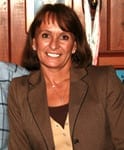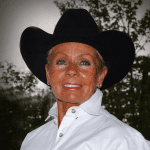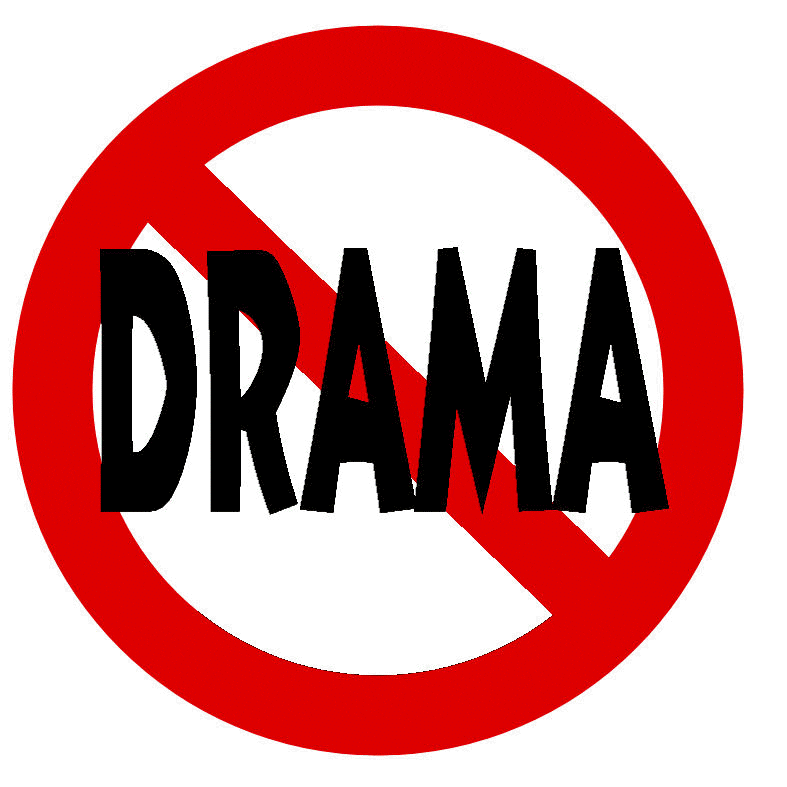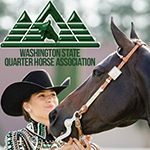Competition can bring out the best, and the worst, in all of us. Being sweaty and covered in dirt and rhinestones at the same time can bring training programs closer together, and it can also create some awkward situations that drive them apart. These situations are rivalry, jealousy, or financially based, and are often fueled by gossip. Regardless of the reason, drama can be the final outcome and if not handled correctly, can cause some major issues within the barn.
GoHorseShow interviewed seasoned trainers who have been through it all and asked them what are the best ways to avoid drama.
What are some common issues you see in your barn?
 Nancy Cahill: Sometimes there will be jealousy between customers, whether it being skill level, or a better horse. Most trainers don’t involve themselves with that, it’s just human nature and some people can control that and some can’t. I really think as a trainer, your comments need to stay with that customer and it’s hard to do sometimes. I think it’s not human nature to be private sometimes, but it’s something you have to strive to do, and to keep your business your business, whether you’re the trainer or the customer.
Nancy Cahill: Sometimes there will be jealousy between customers, whether it being skill level, or a better horse. Most trainers don’t involve themselves with that, it’s just human nature and some people can control that and some can’t. I really think as a trainer, your comments need to stay with that customer and it’s hard to do sometimes. I think it’s not human nature to be private sometimes, but it’s something you have to strive to do, and to keep your business your business, whether you’re the trainer or the customer.
 Brad Jewett: I think we have a competitive heart of everything we do. It can be difficult to keep to yourself. There can be a little separation and people start getting a little, not necessarily favoritism, but it can be perceived as favoritism. I have a very honest, open policy in my barn. I’m not afraid to confront people. I try to be sensitive to issues, but not hypersensitive to it, to where we have to dance around. If I feel there is an issue, I confront it. I know those kinds of things can be poison to a barn.
Brad Jewett: I think we have a competitive heart of everything we do. It can be difficult to keep to yourself. There can be a little separation and people start getting a little, not necessarily favoritism, but it can be perceived as favoritism. I have a very honest, open policy in my barn. I’m not afraid to confront people. I try to be sensitive to issues, but not hypersensitive to it, to where we have to dance around. If I feel there is an issue, I confront it. I know those kinds of things can be poison to a barn.
 Heidi Piper: We normally don’t have much drama. We live in our business, and we don’t like drama. It’s pretty well known right off the bat that we respect people, and we want respect in return and we insist on that. With jealousy and everything, we just don’t have that problem. We understand jealousy and we have all lived it, but it’s how you conduct yourself that matters. We try very, very hard to treat everybody equally. Nine times out of ten, I would be the last person to know if two people didn’t like each other. If people have problems, they just have to do it somewhere else.
Heidi Piper: We normally don’t have much drama. We live in our business, and we don’t like drama. It’s pretty well known right off the bat that we respect people, and we want respect in return and we insist on that. With jealousy and everything, we just don’t have that problem. We understand jealousy and we have all lived it, but it’s how you conduct yourself that matters. We try very, very hard to treat everybody equally. Nine times out of ten, I would be the last person to know if two people didn’t like each other. If people have problems, they just have to do it somewhere else.
 Darlene Trein: I’ve probably heard it all and I’ve probably seen it all. I’m a very big communicator and because I love horses and the people, I think that’s helped me a great deal. I’m pretty quick to know the different kinds of drama, like horse, family, or financial drama. I am a very good listener and, if there is an issue, I’m the first to say, ‘Come to me and talk about it.’
Darlene Trein: I’ve probably heard it all and I’ve probably seen it all. I’m a very big communicator and because I love horses and the people, I think that’s helped me a great deal. I’m pretty quick to know the different kinds of drama, like horse, family, or financial drama. I am a very good listener and, if there is an issue, I’m the first to say, ‘Come to me and talk about it.’
What rules have you implemented to keep drama out of your barn?
Nancy Cahill: I really don’t lay down any laws besides that the horses need to be taken care of before anything else. This is fun for 99% of people and a stress reliever for them so why would you want to be miserable? I don’t lay down any rules in particular because I always believe that it’s your horse, you’re going to pay me “X” amount to do my job, and if you want to come ride him, you can and I will give you my best advice.
Brad Jewett: Confronting and talking to people about issues is a rule I personally have. If I sense something going on, I just try to nip it in the butt right away. Another rule I have is to come to me with any concerns. If there are any complaints you might have with me, or with your performance horses’ status, then just talk to me. Please do not go to the other clients and start anything. I’ve got big shoulders, and I’m not afraid to take on any questions and I’m not above changing my mind on something if I was wrong. Communication is very key between the parent, the trainer and the student. There’s too much out there that can be put in between that.
Heidi Piper: We kind of have a strong foundation here. We don’t allow people to bad mouth others and we’ve always maintained the fact that everyone has the right to do this, but we just don’t engage ourselves in the conversation. Now if somebody doesn’t like somebody else, that is not our concern, but how he or she handles themselves around us, is our concern. Any personal issues that they may have, they keep it away from our business. We have this old saying, if someone is stirring the pot, then you throw out the spoon.
Darlene Trein: I will tell my clients that I’d like good working relationships, I expect good sportsmanship and I tell them what I really expect. If I need to repeat myself along the way I will. Along the way, we’ve met people that make drama in their lifestyle and I am just intolerant with the busy-body type. We’ve been fortunate to not have those people and I believe I must exude this intolerance toward that manipulating and caddy behavior.
How do you handle parents that bring drama into the barn?
Nancy Cahill: Most of the time the problem is that they (the parent) want it so bad for their kid, that they just don’t know where to draw the line. Some kids are better than others and just have a natural talent, but most of the time, the only reason the parents are dramatic is because they want it so much for their kids. Now there have been several instances where the parents say “well I think they should be doing this or that,” and I say “okay, on Saturday we’re going to send the kids to a movie and we’re going to take all of the parents and y’all are going to ride their horses and I’m going to give you a riding lesson.” And then they just run backwards, “Oh no, we believe you, we believe you,” and I ask them to be a sport but “oh no, no, no.” And that keeps them quiet. I’m just trying to show them how difficult it can be and help them understand.
Brad Jewett: They’re usually gone. I’ve had a couple of cases of that and when that’s happened, they find it uncomfortable and they leave, or I just ask them to leave. In those cases, I kind of mention, that this is probably not the place for you and it’s not what I desire but, if that’s how they feel then that’s how they feel. It can just become a cancer and just spread way to fast.
Heidi Piper: We talk to them immediately. We get ahead and we don’t want that (parent’s bringing drama) to happen. It is not acceptable and as long as you lay the ground rules from the very beginning, it just doesn’t happen. Right now, my customers get along beautifully with each other and with the kids. In the past I have had parents and kids who do not talk nice to each other at shows, and we make it very clear that they can say whatever they want at their car, but they cannot our stalls. Our stalls is a place for people to come and enjoy, to show horses and do what we do, and somebody else’s problems does not need to be around us.
Darlene Trein: In 30 plus years, we’ve only had to ask one client to leave. Dan and I have decided amongst ourselves not to work with that person and there have only been a couple of situations where we have ever had to step away from. Honestly, I think that’s pretty amazing. I really believe that certain people are drawn to certain people and that’s why we’ve been so fortunate. We’ve had situations to handle, and Dan and I are direct and just handle it.
How do you handle exhibitors in your barn who are rivals?
Nancy Cahill: I just try to have them concentrate on what they are trying to get done and try to refocus on what they need to get done. My job as a trainer is to teach you how to ride, to take care of your horse, to teach your horse, and to make you a team. If you’re riding your horse with me, then we need to keep our focus on being a team and kind of forget what the other people are doing. You are riding your horse for yourself.
Brad Jewett: I never let the “squeaky wheel get the grease.” So everyone is treated on an as needed basis, that’s not to say that one might want it more than others, but if someone needs more help, the simplicity of it is that they need more help. So that means that the others are doing very good and they don’t need the help. In my perfect world, I’d like everybody to be equal and everyone to win the same amount.
Heidi Piper: They don’t have to be the best of friends, but if they have issues with each other, we don’t want it near our business. Just because two people don’t get along, doesn’t mean I can’t see them individually for what they are in my eyes.
Darlene Trein: I believe that you need to look at your competition, whether it’s in your aisle way or in the aisle way next to you, and you need to respect and learn what makes that person so competitive with you. I teach that your competitors are not your enemies and they could be one of your best friends. It just depends on how you look at competition.
Anything else you would like to add?
Nancy Cahill: If we were figure skating or bowling, it wouldn’t make a difference because there’s always drama. Some people thrive on it and you just have to walk away, even if they’re in your barn. Just walk away.
Brad Jewett: Communication is key. What’s always helped and worked for me when I have youth kids is that the parent, myself and the youth have a very good relationship. If anything goes on like school or other things that I need to be aware of, then the parent has always been very communicative with me and likewise with me to them. With kids, it makes a difference if you have a parent that agrees with you. For amateurs, it’s a little different story in that they’re adults and they’re a little bit different, but I’ve never really had any amateurs that I’ve had a problem and we always get along pretty good. It’s really nice.
Heidi Piper: How you control drama in your barn is how you control drama in your life. We live in this business, and I’ve raised my children in this business, and now they’re all horse trainers. Just keep other people’s problems out of your life. I love the way our business is run and I love our customers and I’m able to do that because we don’t allow that drama in our life. Set your standards from the very beginning and run your business how you want to live your life.
Darlene Trein: Overall, in every sport, there is always something that you could classify as drama. I’m very tolerant of the drama that comes from just a bad day, but I think the drama has dialed down in the equine industry over the past 20 years. There’s something rewarding about seeing our clients walking to the show pen to root for each other and I have worked very hard at cultivating that.
Trainer Bios
Nancy Cahill: Nancy has been training performance horses for over 40 years. According to her, she’s raised more kids through her training program then she can count. She has coached the USA World team, provides training videos to help bring tips across the country and still actively trains.
Brad Jewett–Brad has trained several AQHA World and Congress champions, more notably in the pattern classes. He was on top of the world when his clients were one and three at the AQHA youth world in 2010 and he still carries on to have a thriving business. Located in Texas, Jewett Performance Horses’ provide communication between horse, rider, parent and trainer so that there may be successful show career for all.
Heidi Piper–Heidi has been in all thins horses since 1976, when she and her husband Duane married and built a training facility in Ohio. They have both had success in the show world with numerous AQHA World and Congress Champions. They have come to know their clients well and have spread their legacy to their children, Chad and Dawn, who are also trainers now.
Darlene Trein–Dan and Darlene Trein have coached and trained several champions since 1970. With over 40 years of experience, Darlene knows how to handle anything that may come her way and has seen it all. She and Dan continue to thrive in the horse world out of their facility in Ohio.









